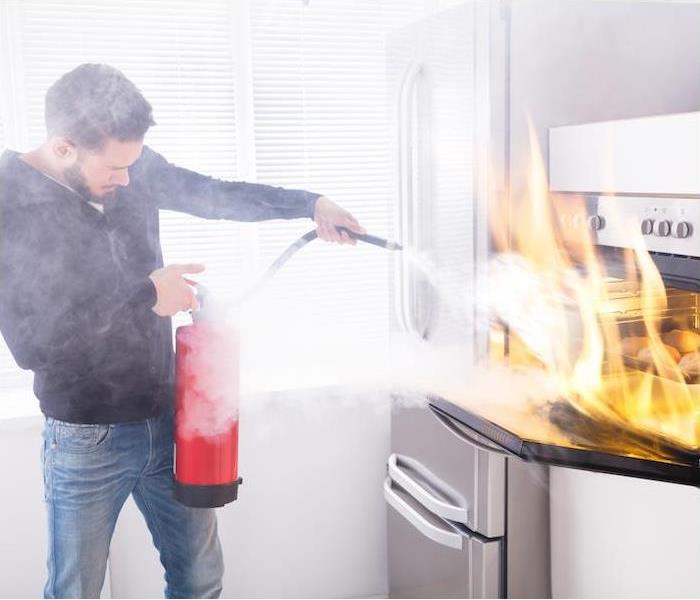Avoiding Fire Hazards While Cooking | SERVPRO® of Western Essex County
11/15/2021 (Permalink)
 If your home has experienced damage from a cooking fire, know that SERVPRO® of Western Essex County is here to make it “Like it never even happened.”
If your home has experienced damage from a cooking fire, know that SERVPRO® of Western Essex County is here to make it “Like it never even happened.”
Even though the kitchen can be a wonderfully versatile place for family and friends to gather to enjoy a fresh-cooked meal or to spend quality time together, danger can lurk. Unfortunately, home fires can often begin in the kitchen.
Fires resulting from cooking are the No. 1 cause of home fires and injuries and, often, the leading cause of these kitchen fires is unattended cooking.
Over $130 million in homeowners insurance claims that were related to grease and other cooking fires were paid out in 2017 by State Farm Insurance. According to the insurance company, these are the worst states for kitchen fires:
- North Carolina
- Texas
- Pennsylvania
- California
- Ohio
- Illinois
- Maryland
- New York
- Alabama
- Georgia
There are other safety tips to look into, as well as the well-known tip of remaining in the kitchen while cooking. Here are some other helpful tips to observe while cooking:
1. Be careful of your clothing. If you are wearing long, flowing sleeves or loose fitting clothing, it is best to change into a short or close-fitting sleeved shirt or make sure any loose shirts are tucked in or tied back away from the stove. Loose clothing could catch fire if you aren’t careful and get too close while cooking over the stove.
2. Be aware of what you are placing on or near the stovetop. Make sure there are no kitchen towels, oven mitts, appliance cords or even curtains too close to the stovetop when cooking. Ideally, it is best to move anything flammable away from the stove.
3. Place a fire extinguisher in or close to the kitchen. It is best to have at least one fire extinguisher located in your home and, ideally, one that is near your kitchen. Make sure you know how to properly use the extinguisher, just in case it is ever needed.
4. Wait before throwing hot grease in the garbage can. Even if the grease may not be on fire, it could still be hot enough to cause something in the trash to burn. Letting the grease cool a bit and then disposing of it in an old coffee can is safest. Also, know the smoke points of the oils you cook with. Be sure to never subject a low-smoke point oil to high heat when cooking, as it could catch fire.
5. Be sure there is a fire escape plan established. Thinking about the worst that can happen is not fun, but it’s better if you are over-prepared rather than unprepared if an emergency were to occur. Go over exit routes and designated meeting points with your family, making sure that everyone knows what to do.
Fire safety in the kitchen is an absolute necessity, as it can help prevent dangerous and destructive cooking fires.






 24/7 Emergency Service
24/7 Emergency Service